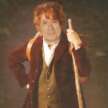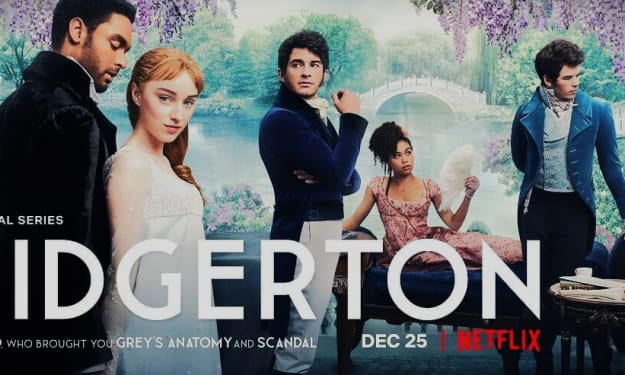School of Hard Knocks
student loans for nothing

On the editing floor of my existential documentary were piles of disconnected stories. I had no hope or the energy to reconstruct in some comprehensible way that made sense. To the best of my ability my 18-year old life was as follows:
My life in conjunction with age grew to be messy. The days of hanging a thumb out and moving with the muse were over. The wide-open, timeless moments of 1969–1972 were now compressed into outrunning reality. The reality was, it seemed, that time was running out on me.
I was sick of my hardscrabble existence. It made for a good song and story but in real life it sucked. A few dollars earned at daily labor. Someone's couch. Big Mac Happy Meals. My skinny little body absorbing the frowns. Throw-away, uselessness that is generally associated with a perennial loser.
Communication with my parents remained sketchy. And I didn't know how to make amends.
The way I reconnected with my dad was by happenstance. We met at a crossroads- we were both trying to find a way to earn a living.
While the rest of my family left Minneapolis. Relocated to California, my dad stayed behind to start a new job. After his training was completed, he would also transfer to California. Dad got a job through a government program DVR (Division of Vocational Rehabilitation). They hired him to be one of their vocational counselors, which seemed ironic to me. My dad was going to be a counselor?
After his mysterious roadside accident, that laid him up for years, I knew it hadn't been easy for my dad to land this job. To meet the qualifications. He had to return to night school. Complete a Master's program in vocational not "therapy" counseling.
I sat at my dad's desk with wide eyes. It had been a long time since I'd seen him last, and I'd never seen him behind a desk. He looked smart in his blue blazer and open-collar shirt. The phone with many buttons, a fax machine, and a secretary.
The scene reminded me of my experience at the food stamp office. I was happy to see him and glad to see he was over the accident. He was more a mystery than ever. I grew up with an "absent dad" syndrome.
I had resigned myself to the philosophy that our estranged relationship was a fact of life. I'd better make the best of it. He had me booked for an hour and there were other clients following me, so we got on with the meeting.
"There's a new trade school called Humbolt Institute. It's near downtown Minneapolis," Dad explained. "I know the admissions coordinator. He can arrange your enrollment."
"That's great, Dad, but what does the school teach?" I asked him.
"Don't worry about it," he said, brushing off the question.
"Who will pay for it?" I inquired further.
"Don't worry about the money, either." Dad told me, "I have a relative in the business, and he will give you a job."
I was a bit stunned by this sudden fair weather life-changing moment.
My dad would not give me money to live on. Allow me to stay in his apartment, but he did manage to get DVR to sponsor me as a rehabilitation case. What I was being rehabilitated from, and to what was never explained. This was the third time in my life the word rehabilitation was used about me. The first time was in elementary school. The second was Mr. Booty, my probation officer. Now, I was hearing it from my father.
My dad had a bona fide accident and a war injury. It left him partially disabled, but how that applied to me was another question. The only sense I could make of the ongoing rehabilitation conversation. A round peg in a world of squares holes needed reformatting so it would fit in. Drop the guitar. Get real. Become a taxpayer. When would I wake up from this crazy compass nightmare?
My self-esteem was battered enough without the distinction of another negative label. Since no one cared to look at what talent lurked beneath my broken shell. No one would back my idea to go to music school, I had little choice other than to go along with dad's plan and hope for the best. He was my dad after all and if I couldn't trust him, who could I trust?
Humbolt Institute had created an unfounded. Niche market, with a trade program called Dental Technician. In only one year they tried to compress the skills and knowledge. What took many years on the job to learn. The art of building prosthetic teeth out of metal and wax. A specialist trade, a time-honored tradition, filled by an apprentice. The art compared to skilled craft-like jewelry making.
Teeth were important, I convinced myself. What would my life be like without them? Furthermore, I reasoned, it looked sexy dressed as a dentist in the brochure. The white pressed jacket had an air of privilege, cleanliness, and class. Finally, they called it a "vocational school" where grades were not as important as what my hands could do.
The so-called admissions coordinator was Guy Evers. Unknown to me at the time, Guy had worked for DVR, was my dad's former colleague, and was fired.
"How would you like to make $30,000 per year in your first year?" Guy asked, exuding the enthusiasm and sincerity of a stereotypical used-car salesman. His round glasses, bow tie, and clipped mustache gave him a sense of innocence.
"I can make $30,000?" I asked, dreaming about the guitars I could buy with that kind of money
"That is the current starting wage for a crown and bridge technician." He replied matter-of-factly. It didn't take much prodding to get a starving 18-year-old to sign a contract promising the money to do anything.
"What happens next?" I asked.
"The program begins next month," Guy said, pushing several documents before me. "Sign here and there."
Little did I know that I had signed for state funding and a student loan. In other words, he was double billing the tuition. What my dad knew I never found out.
The technology of the trade was fascinating. Hand drills, metal casting, and a vast array of high-tech dental tools. I would wear a white lab coat and believed each day I went to the school that it was one last day spent in poverty. My musical aspirations are on hold.
Hy, who owned and taught at the tooth fairy school, showed me around the classroom. He was from New York, and he was Jewish, which wasn't relevant to me at the time. He wore a 48-hour unshaven face, metal-rimmed glasses, and his kinky black hair covered his ears. The teacher also had a great sense of humor, played pranks, and was liked by all the other students.
Being that this was the first class Hy taught, I doubt he knew what the school was up to. I had a hard time bonding with him, which I blamed on myself. I came to the class wearing rock 'n' roll on my sleeve- a fixed resident of the slums, inner-city Minneapolis.
Besides my brief stint at a community college. Limited professional interaction. I had never associated with people from the mainstream before. I felt out of place next to my middle-class classmates. I felt like an immigrant from a third-world country trying to overcome a feeling of inferiority.
I often found myself talking to a plastic model of a mouth. As I added teeth trying to create a set of dentures, the mouth of the sacred tooth fairy said, "Forget this nonsense. It's not you!"
Fixing your bite is going to make me rich," I said to the mouth. I pushed a back molar into the hot wax of the denture and the conversation ended.
The program hours were 8–5, 5 days per week. The first class had 30 students, a lot older than me. Unlike my classmates, I had no money to live on. The school sucked up my grants and loans to leave me nothing for rent, food, and clothes. The best I could do was work part-time in the evening.
Two months into the program my dad moved to California. I was the last in my family to remain in Minneapolis. A new feeling of abandonment found a hole in my skin and burrowed its way into the nervous apple of my heart. "You make your own bed and lie in it," my mother's slogan echoed across the vast distance that separated us. This was not the life I imagined. I walked away from my home at 15 years old to rebel for civil rights, the Vietnam War, and to pursue music.
I worked four hours per night at the Sears and Roebuck warehouse tower, on Lake Street. It took two bus transfers to get there and back.
"Because you're in dental school doesn't mean you're above the rest of the world," the warehouse manager ridiculed. The assistant manager had complained about my attitude. Why I wasn't sure. I did as directed. The misunderstanding of what the school did and what it meant was a problem.
"It's not a dental school," I said. "It's a trade school. I wish I could be a dentist."
"Go stock floor six," he commanded.
Nicknamed the Sears Tower, it was half the size of Willis Tower in Chicago, with its 110 floors. The Lake Street tower was still big enough to get lost in. Each floor was dark and dirty. Filled with American consumerism. On the main level washing machines to watches. On the top-level clothes. I was alone up there every night stocking.
I often wandered the floors going on make-believe shopping trips. I tried on new shoes. Marveled at a stereo player. Loved the tents in sporting goods, a golden new Rolodex watch on my left arm said something. Sears didn't sell music instruments, but they did sell a home church organ and I played it at the end of my shift.
One night. I was stocking clothes my size, remembering a recent conversation with my parents.
"Dad, I don't have any clothes to wear," I'd complained over the phone, "Mom, can you send me $50? I don't have any food. Mom and Dad, how do you expect me to go to this school when I am already two months behind in my rent?"
When the help didn't come, I listened to the devil on my shoulder, "Wear new clothes like underwear. No one will notice. Sears has millions of dollars. You have nothing. Go on." Out of desperation mind you, the hungry rat stole a piece of cheese.
Unbeknownst to my classmates, I returned to my circus days of survival tactics. I kept my life as a petty thief, panhandler, and junkie roommate a secret.
A year later, I graduated from the Tooth Fairy school with straight A's.
I was a new man with that diploma. The words Dental Technician are inscribed in Gothic letters. On parchment an important-sounding slogan in Latin below my name. The world was my oyster now. Doors would swing open like magic with a simple wave of my toothbrush. There would be "Mr." before my first name.
What could I do with a big salary? Show Dad my first check? What type of guitar would I buy? Buy my first car? Should I spend my first vacation in Cancun?
Since I lived in the inner city on the bus line. The majority of the employers are located in the far suburbs. Getting there was a problem.
"How are you going to get here on time?" The 20-year-old owner's son asked me in the interview.
"Millions of people ride the bus," I said, showing him my new diploma. "Why should that matter?"
The truth is it didn't matter. It was an excuse, I later figured out.
"Nice diploma," the owner said. "There are no open positions, yet."
I looked at the newspaper I held open to the job want ads. Boos Dental Laboratory was an easy bus ride downtown, so I gave them a shot.
The position, crown, and bridge trainee circled in the paper. I showed the manager the ad.
"Oh, that job," he said. "We filled that position an hour ago."
"The owner of your school is Jewish, right?" the manager asked.
It dawned on me that the name of the Dental Lab, Boos. It was German.
"I wouldn't know about that Mr. Boos," I said, and left.
Even though I did not finish high school. I wasn't so stupid not to recognize where the program went wrong. There wouldn't be a job for any amount of pay. The diploma was birdcage fodder.
Tooth Fairy school had made two big mistakes. First, instead of creating qualified technicians, they graduated with over-qualified apprentices. The fact that I knew more about the field as a whole made the other workers in the business uncomfortable. And second, the school closed for fraud. Caught double-dipping the government.
"What now?" I said to the dentist in the mirror.
The stupid idea entered my mind. I could go after those responsible and hold them accountable. Holding a piece of paper that wasn't worth the ink printed on it, emboldened to make a few phone calls.
To receive some type of settlement for my financial loss. The personal wrong I felt, I filed a formal complaint against the DVR. They assigned an ombudsman representative. Despite her physical handicap. Which left her bound to a wheelchair, she was eager to prove herself. She took careful notes on my case and arranged a meeting with the director of DVR.
"The school closed for fraud," I complained. "I reported the problem and no one listened."
The Director sat behind his big desk, in his big office, and listened. The Minnesota state flag is displayed behind his chair. A signed photo of the Republican President on his desk. There was a photo of the new Republican Governor on the wall.
"Why was I made to take out a student loan? I have no means to repay. Your program should have covered everything?" I challenged.
"DVR was not picking up 100 percent of the bill in your case," Mr. Sheldon smiled. Displayed a set of denture perfect white teeth, "we were only paying for a part of the tuition."
"That was not explained to me. Furthermore, what was I doing receiving money from DVR in the first place?" I questioned.
In front of my ombudsman, the Director was on the record. He looked angry. "That was the plan made for you," he answered.
"I never applied to be on your program. DVR, don't get me wrong is a great service. But, as you can see, I am not disabled." I pointed out, with direct certainty, "what's supposed to be wrong with me? Can I see my case file?"
I jumped up and grabbed a file off his desk with my name on it. In big bold letters "Delusional."
"What the hell is that supposed to mean?" I shouted and threw the file back on his desk. I had seen my name on too many case files.
"Since you must know," he paused, "the exact diagnoses not determined. Ask your dad?"
"What else did my Dad write?" I questioned.
The mention of my dad set off a bomb.
"You didn't tell me your counselor was your dad." My ombudsman retorted, smashing the metal of the wheelchair with her fist.
"You didn't know he works for DVR?" I pushed back.
"This is outrageous," she shouted at the Director.
Sheldon waved his hand at her to calm down. "What is it you're looking for, Mr. Hennings?" he asked.
I was suspicious that my dad had cooked up a story about me in an attempt to make himself look good. Was it a trick to get off the hook for our problems? If anyone needed a counselor it was my dad - not me. The little big man in me stood up.
"I never asked for the student loan. The choice of school came through DVR. I want you to reimburse me. All I wanted was to go to a music school like any other talented musician. Why did no one listen to find out if I had talent? Why not help me with a scholarship? Why try to derail my dream with the promise of money?" I protested.
"I am not going to reimburse you," he hollered, holding up my file and slamming it back down on his desk. How many times have I seen my file slammed into a desk?
"Then I am going to sue you," I swore.
He laughed, "Take your best shot."
My ombudsman's jaw was swollen shut at this point.
I walked out of the office with the first of many inherited debts I couldn't pay. The upside was that I had learned a lot of dental vocabulary. To a dentist's delight, I could describe in great detail the anatomy of my teeth.
"There's a cavity right here. In the interproximal space. Mandibular, left #2 bicuspid," I told the dentist during my appointment.
"Where did you learn that dental vocabulary?" he asked.
"I went to dental technician school." I clarified, handing him my medical welfare card. "Please check the occlusal surface of my upper first molar, distal cusp, too."
About the Creator
Arlo Hennings
Author 2 non-fiction books, music publisher, expat, father, cultural ambassador, PhD, MFA (Creative Writing), B.A.






Comments
There are no comments for this story
Be the first to respond and start the conversation.